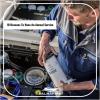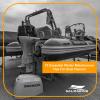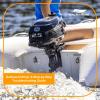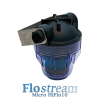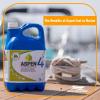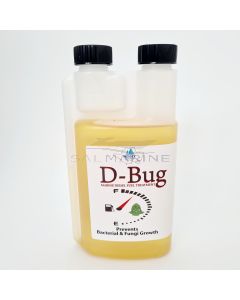Diesel Bug: How to Prevent and Treat It
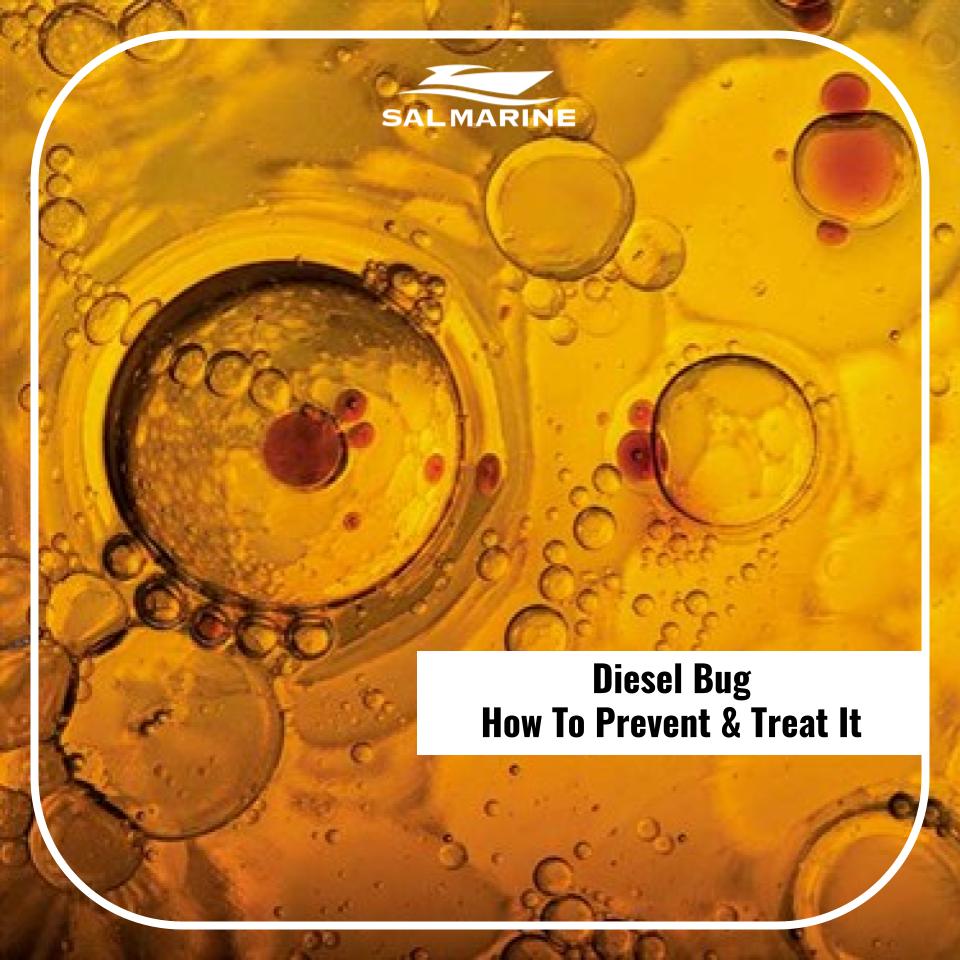
If you're a boat owner, you're probably aware of the many maintenance tasks required to keep your vessel in top condition. One of the issues that you may encounter is diesel bug, a problem caused by bacterial growth in diesel fuel. Diesel bug can cause serious damage to your engine, leading to costly repairs and even rendering your boat unusable. In this post, we'll explore what diesel bug is, how to prevent it, and how to treat it if it occurs.
What is Diesel Bug?
Diesel bug is a term used to describe the bacterial growth that can occur in diesel fuel. The bacteria feed on the hydrocarbons in the fuel and produce waste products that can clog fuel filters and injectors. As the bacteria grow and multiply, they form a slimy layer at the bottom of the fuel tank, which can lead to corrosion and damage to the tank itself.
How to Prevent Diesel Bug
Preventing diesel bug is the best course of action, as treating it can be time-consuming and expensive. Here are some steps you can take to prevent diesel bug from forming in your boat's fuel system:
- Use high-quality diesel fuel from a reputable supplier. Low-quality fuel is more likely to contain contaminants that can contribute to bacterial growth.
- Keep your fuel tank full to minimize the amount of air in the tank. Air contains moisture, which can provide a breeding ground for bacteria.
- Add a biocide to your fuel. Biocides kill bacteria and other microorganisms that can cause problems in your fuel system. However, be aware that biocides can also have negative effects on the environment, so use them sparingly and according to the manufacturer's instructions.
- Regularly drain and clean your fuel tank. This will remove any accumulated sludge or debris that could contribute to bacterial growth.
- Install a fuel polishing system. This system circulates fuel through a filter to remove contaminants and debris, preventing them from settling in the fuel tank.
How to Treat Diesel Bug
If you suspect that your boat has diesel bug, it's important to take action as soon as possible to prevent further damage. Here are the steps you can take to treat diesel bug:
- Drain and clean your fuel tank. This will remove the majority of the bacteria and other contaminants.
- Add a biocide to your fuel. Follow the manufacturer's instructions carefully, and be aware that some biocides can be harmful to the environment.
- Run your engine for a period of time to circulate the biocide through the fuel system. This will ensure that the biocide reaches all parts of the fuel system, including the fuel lines, filters, and injectors.
- Replace your fuel filters. Diesel bug can clog filters quickly, so it's important to replace them regularly to prevent further problems.
- Monitor your fuel system for signs of further contamination. Regularly check your fuel filters and tank for signs of sludge or debris, and take action if necessary.
Diesel bug is a serious problem that can cause significant damage to your boat's fuel system if left untreated. However, by taking steps to prevent diesel bug and acting quickly if it does occur, you can minimize the risk of damage and keep your boat running smoothly for years to come.
SAL Marine - Diesel Polishing and Tank Cleaning
Fuel cleaning is now a key feature to SAL Marine services, whether you are a commercial customer with 2000ltr tanks or own a small sailing boat with a 35ltr tank, we can help. Our diesel polishing and tank cleaning service effectively removes water from your fuel tank, along with any sediment, algae, fungi, bugs and debris that may be resting at the bottom of the tank, guaranteeing that your fuel is completely clean and free of any water contamination. Once the fuel clean is complete we treat the tank with a chemical agent to prevent the bug from breeding again. Having diesel polishing and tank cleaning periodically carried out by our trained technicians will also help avoid problems like internal tank corrosion, a smoking engine or clogged filters. Additionally, we can verify that your diesel fuel system is suited to your vessel’s fuel capacity, helping you get the best possible performance out of your vessel.
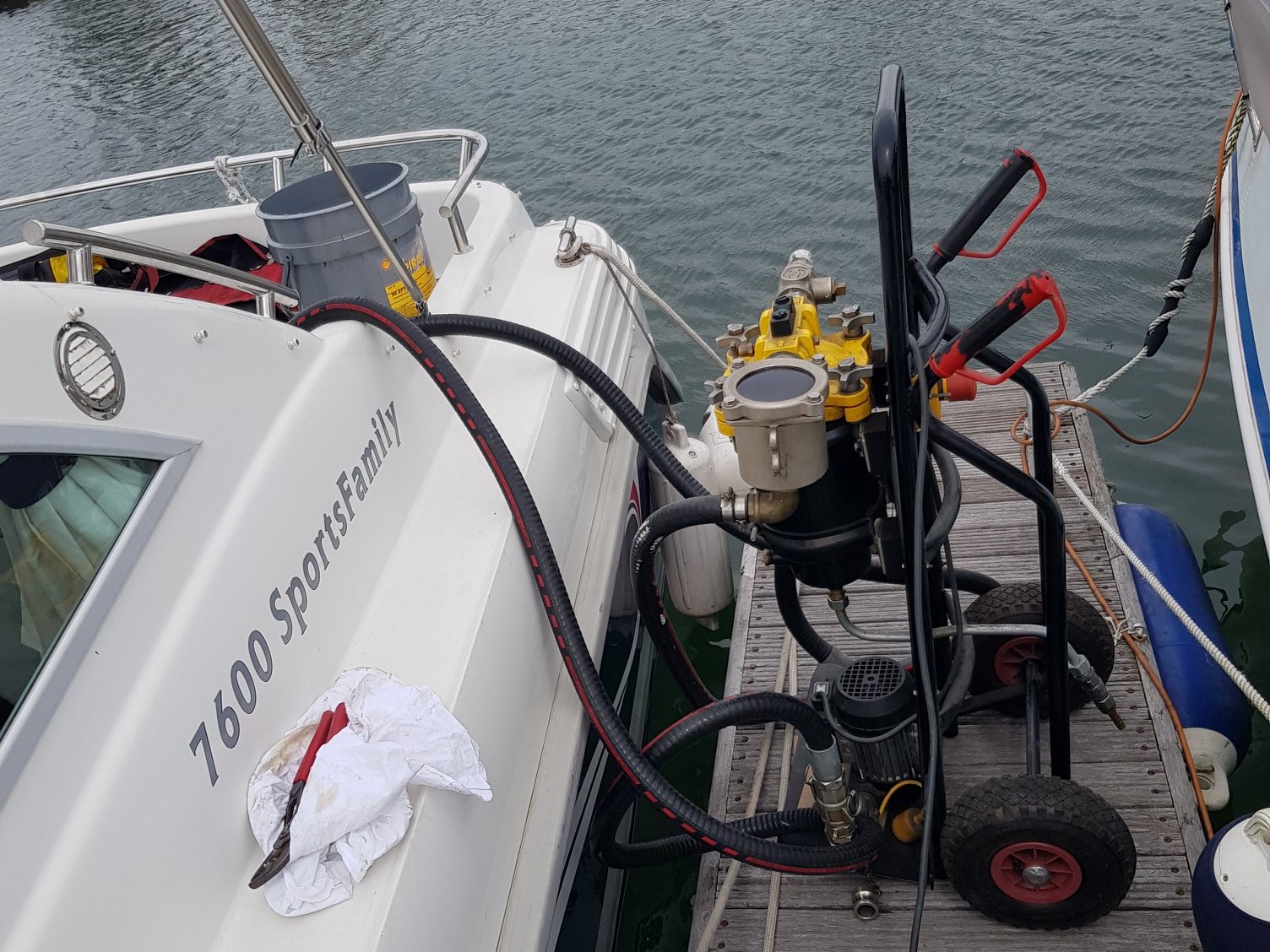
Contact SAL Marine's service department to find out more: Contact us


 to save as many parts lists for boats and engines as you want. It makes reordering and costing up jobs, quick and easy!
to save as many parts lists for boats and engines as you want. It makes reordering and costing up jobs, quick and easy! 

